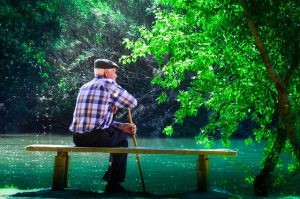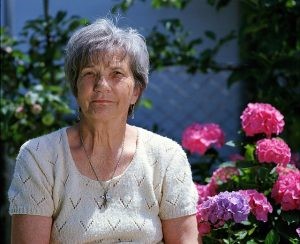
Jeff Kunerth of the Chicago Tribune wrote about a rapidly growing number of seniors who were living without any support network, and the difficulties this presented for them as they aged. He wanted to impart on his readers the situation these older Americans found themselves in, so he coined a term that instantly conveyed their situation to everyone: “elder orphans.” The phrase caught on and was soon being used by the media, medical professionals, aging experts and senior advocates to describe seniors who were living independently but lacked the support of family or close friends.
Despite the embrace of the term “elder orphans,” there is still a widely held misconception that all seniors have family they can fall back on to help them manage the challenges of aging. Sixty-five-year-old Carol Marak knows firsthand that is not the case. She has written extensively about her experience and struggles as an elder orphan and has found it common for health care providers to believe that all seniors have family “waiting in the wings” to take care of them.
There are approximately 13.3 million seniors who meet the definition of elder orphan, and that number will only grow. According to U.S. Census Bureau data, nearly one-third of Americans age 45 to 63 are single and positioned to become elder orphans.
Elder Orphans Face a Greater Risk of Medical Problems
Experts agree the biggest risk facing elder orphans is loneliness and social isolation – both of which have been identified as risk factors for physical and cognitive decline. In 2016, Dr. Maria Carney published an extensive paper in the peer-reviewed journal Current Gerontology and Geriatrics Research. Dr. Carney is Chief of Geriatric and Palliative Medicine at North Shore-LIJ Health System in New York and has been researching the psychosocial and medical risks elder orphans face for the past decade.

In addition to the severe medical challenges elder orphans face, the logistics of everyday living become more complicated. Transportation is perhaps the most challenging issue for elder orphans who can no longer safely drive, and don’t have access to public transportation. From getting groceries to attending doctor’s appointments, or going out to visit with friends, a lack of transportation can virtually imprison an elder in their home or neighborhood.
Without the income of a spouse or the support of children, elder orphans can have difficulty obtaining affordable housing. This is a common discussion topic on the Elder Orphans Facebook group, which currently boasts nearly 4,000 members.
Other common concerns for elder orphans are legal and care issues. Without family, these individuals can struggle to manage their financial affairs and are more likely to become victims of financial exploitation. Without family or friends checking in, it’s more likely a senior’s declining health will go unnoticed. Dr. Carney’s research notes this is one of the largest challenges facing elder orphans. Writing in Current Gerontology and Geriatrics Research, Dr. Carney states, “While many such patients function well at baseline, the slightest insult can initiate a cascade of avoidable negative events.”
Addressing the Elder Orphan Issue
Baby boomers have never been afraid to tackle a challenge head-on, and for those facing the prospect of becoming an elder orphan, many of them are not waiting around. The most common advice shared by current elder orphans, and senior advocates, is to develop a network of friends as one ages. Whether that means becoming active at the local senior center, volunteering in the community or becoming engaged with their church, forming a group of senior friends can combat isolation and provide an initial safety net should they need help to get a prescription picked up or a ride.
The next most important step for elder orphans to take is to have their wishes well-documented and their legal documents in order. Doing so will ensure that when a crisis arises, those responding to help will be aware of how the individual wishes to be treated. Having a living will and designating a power of attorney can resolve what should happen if the person is incapacitated.
What You Can Do for Elder Orphans?
Elder orphans often cite the fear of being alone as the most worrying part of growing old. As professionals who work with seniors, one simple step we can take is to become familiar with programs and groups in our community that focus on seniors. This can range from events at the local senior center and library, to community volunteer opportunities for seniors.